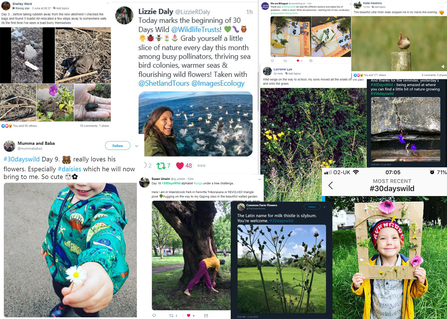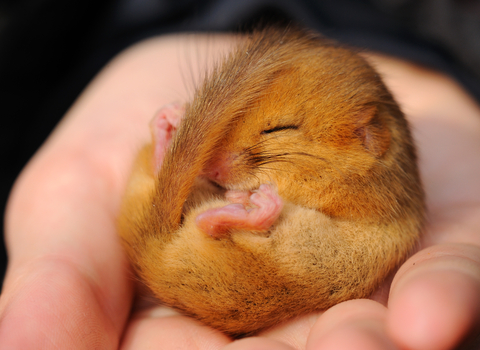The Wildlife Trusts’ annual 30 Days Wild challenge was more popular than ever this year – 400,000 people carried out well over 10 million Random Acts of Wildness over the 30 days of June.
Throughout June, The Wildlife Trusts’ challenge participants to do something wild and enjoy nature every single day. In response, people have been sharing their heart-warming stories and colourful photos and videos across social media channels. As well as the 50,000 individual households who signed up for their free packs of ideas, wall chart, stickers and wildflower seeds, over 9,000 schools, 1,300 businesses and 570 care homes also took part.
It’s been fantastic! I’ve loved the small, sometimes unexpected random acts that have inspired and will continue to inspire me every day
The Wildlife Trusts’ Head of Communications, Joanna Richards says:
“It’s been an extraordinarily wild month! We’ve loved seeing the creative and inventive activities of people taking part right across the UK - getting up close to bugs, butterflies and birds, rewilding a garden or making a daisy chain. You don’t need to go far to appreciate wildlife and often the simplest interactions can bring us the most joy.”
Dr Amir Khan from Ch 5’s GPs Behind Closed Doors is an ambassador for The Wildlife Trusts and took part in the challenge for the first time this year. He says:
“It’s been fantastic! I’ve loved the small, sometimes unexpected random acts that have inspired and will continue to inspire me every day – I’ve fed and watched the birds in the garden, I’ve noticed more nature while out running and taken breaks at lunchtime just to appreciate the world outside. I’ve truly felt the benefit to my physical and mental wellbeing and I think our wildlife has too.”
Kieron Turney, a teacher who leads the Nature Club at Handsworth Grange Community Sports College in Sheffield says:
“This is the third year the school has taken part in 30 Days Wild and it’s such a great challenge. This year we have focused on how these activities have improved the pupil's wellbeing and mental health. The kids have enjoyed different and innovative outdoor activities and had time away from their mobile phones too. Spending time outdoors, learning about nature and wildlife is so important for the next generation and it’s helped them feel refreshed, more focused and ready to return to more formal classes.”


